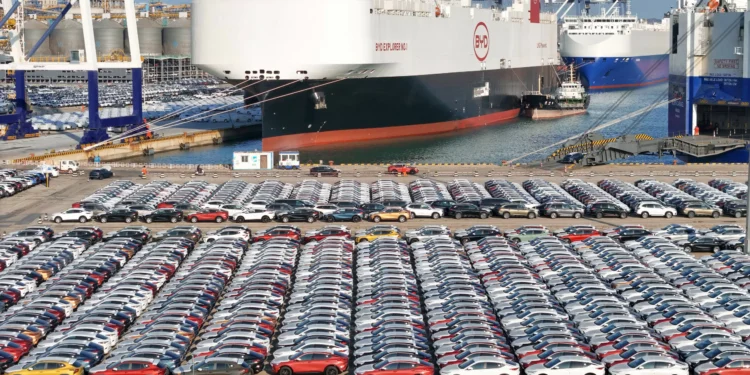The European Commission has recently announced its decision to impose duties of up to 48 percent on Chinese electric vehicle (EV) manufacturers. This move comes as a response to what the Commission has deemed as “unfair” state subsidies given to these manufacturers by the Chinese government.
The decision, which was made after a thorough investigation, aims to level the playing field for European EV manufacturers who have been struggling to compete with their Chinese counterparts. The Commission has found evidence that Chinese EV manufacturers have been receiving significant financial support from the Chinese government, giving them an unfair advantage in the market.
This decision has been welcomed by European EV manufacturers who have long been voicing their concerns about the unfair competition they face from Chinese companies. The European Commission’s move is seen as a step towards protecting the European EV industry and promoting fair competition in the global market.
The European Commission’s decision is also in line with the EU’s commitment to promoting sustainable and clean energy solutions. By imposing duties on Chinese EV manufacturers, the Commission is sending a strong message that it will not tolerate unfair practices that hinder the growth of sustainable technologies.
The duties will be imposed on Chinese EV manufacturers who export their vehicles to the European Union. This means that Chinese companies will have to pay an additional 48 percent on top of the existing import duties. This move is expected to significantly increase the cost of Chinese EVs in the European market, making them less competitive compared to European-made EVs.
The European Commission’s decision has been met with mixed reactions from both China and the European Union. While some Chinese officials have expressed disappointment and called the decision “unjustified,” the European Union has defended its move, stating that it is necessary to ensure fair competition and protect the European market.
The European Commission has also clarified that the duties are not targeted at China as a whole, but rather at specific companies that have been found to receive unfair subsidies. This means that Chinese EV manufacturers who do not receive state subsidies will not be affected by the duties.
The decision to impose duties on Chinese EV manufacturers is not the first of its kind. In the past, the European Commission has taken similar actions against other countries, including the United States and South Korea, for providing unfair subsidies to their respective industries. This shows that the European Union is committed to promoting fair competition and protecting its market from unfair practices.
The European Commission’s decision is also expected to have a positive impact on the European EV market. With Chinese EVs becoming more expensive, European-made EVs will become a more attractive option for consumers. This will not only benefit European EV manufacturers but also contribute to the growth of the European economy.
Moreover, the decision is expected to encourage Chinese EV manufacturers to invest in research and development to improve their technology and become more competitive without relying on state subsidies. This will ultimately benefit the global EV market as a whole, as it will lead to the development of more advanced and sustainable technologies.
In conclusion, the European Commission’s decision to impose duties on Chinese EV manufacturers is a positive step towards promoting fair competition and protecting the European market. It is a clear message that the European Union will not tolerate unfair practices that hinder the growth of sustainable technologies. This move is expected to have a positive impact on the European EV market and contribute to the overall growth of the global EV industry.



